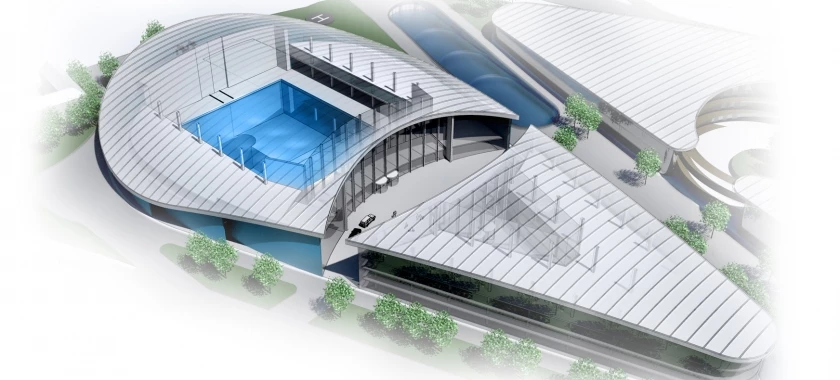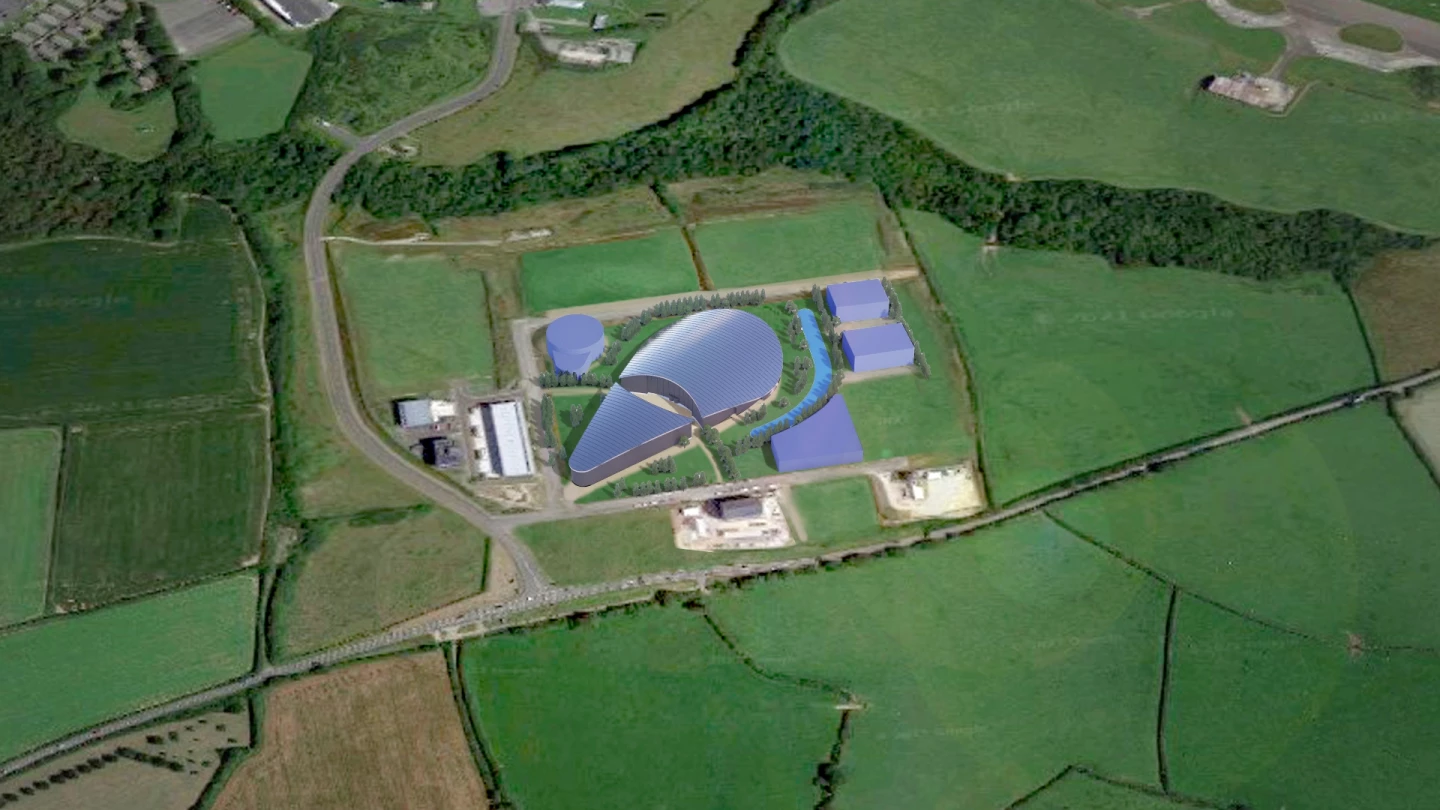Blue Abyss Ltd. is building the world's largest and deepest indoor pool in Cornwall. Set to hold 1.5 million ft3 (42,000 m3) of water or, to use the standard British unit, 168 million cups of tea. It will be used for testing advanced undersea robotics, as well as acting as the world's first commercial astronaut training facility.
Pools are excellent places for testing many nautical technologies, as well as training divers or astronauts in simulated weightlessness. By having a controlled environment, engineers, scientists and trainers have used such pools for over a century to test new techniques, explore submarine design, and work out complex engineering problems.
However, there's only so much one can do with conventional pools. Projects in the 21st century are increasingly ambitious, so the pools being constructed must be equally ambitious to meet with changing demands.
The £150-million (US$212-million) Blue Abyss facility is slated to be built at the Aerohub Enterprise Zone at Cornwall Airport Newquay, which places it in the vicinity of Spaceport Cornwall and the historic Goonhilly ground station. The pool will measure about 164 ft (50 m) long, 132 ft (40 m) wide, and reach a depth of 164 ft (50 m) in its 52-ft-wide (16-m) shaft, which gives it a volume equivalent to 17 Olympic-sized swimming pools.

Developed by ex-forces diving instructor and management consultant, John Vickers, with British astronaut Tim Peake serving on the Blue Abyss advisory board, the 10-acre (4-ha) site is being designed by British architect Robin Partington, who led the design team for London's Gherkin skyscraper. It will include the pool, astronaut training center, performance center, hypobaric and hyperbaric chambers, microgravity suite, training center with six classrooms, as well as workshops, onsite catering, and accommodation facilities.
The pool will be large enough to hold replicas of modules from the International Space Station (ISS), and can be used for testing undersea robotic craft and offshore wind turbine installations. It can even be used to simulate underwater caves for testing remote-controlled craft and to train divers. Support equipment includes a sliding roof, a 30-tonne crane, and facilities to control the pool's temperature, lighting, and salinity, and to simulate different currents at different depths.

Once planning permission has been approved, construction should take about 18 months, with the facility slated to open in 2023.
"We're planning a globally unique facility with a wide range of potential uses that tap into so many of the industries that Cornall and the Southwest are known for," says Vickers. "Blue Abyss will be a huge research asset for aerospace, offshore energy, underwater robotics, human physiology, defense, leisure and marine industries, and a fantastic education center for children and university students. Cornwall already feels like our natural home, and we're delighted to receive such a warm response."
Source: Blue Abyss






